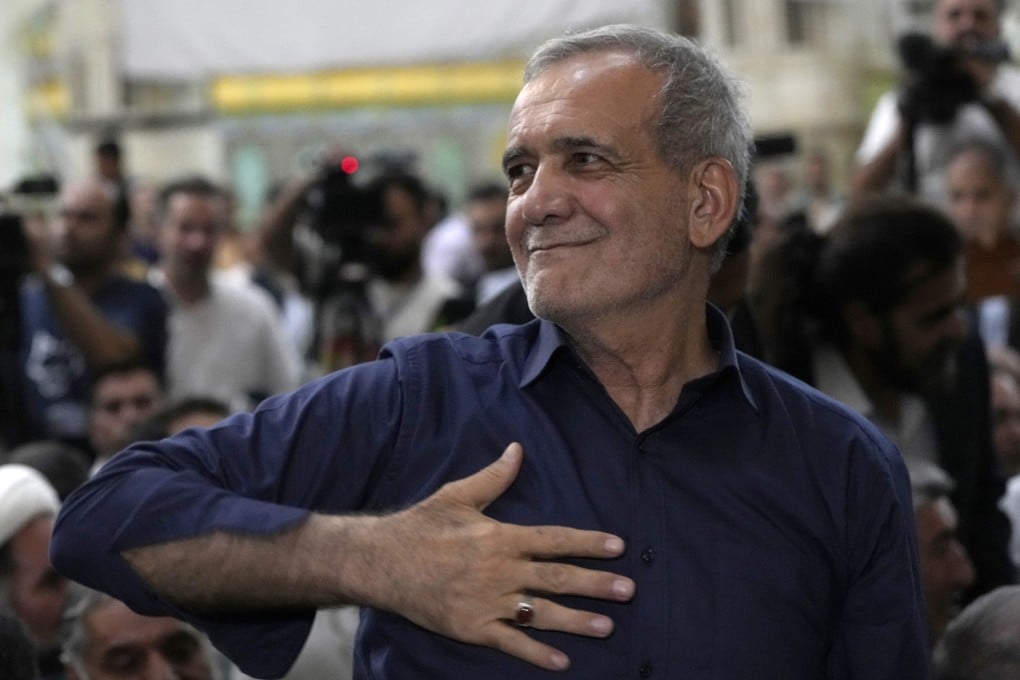China keeps a close watch on Iran’s nuclear reset promise under its new president
- Analysts expect reformist Masoud Pezeshkian to steer Iran towards re-engagement with the West, in a boost for its ties with Beijing

Pezeshkian’s decisive victory over the preferred candidate of Iran’s religious and military establishment reflected widespread public support for his vow to diplomatically re-engage the West, analysts say.
A congratulatory message on July 7 from Supreme Leader Ali Khamenei’s top diplomatic adviser, Kamal Kharrazi, was interpreted as a green light for the president-elect to pursue a “tactical shift” in Tehran’s stance.
Kharrazi, a former foreign minister and chairman of Iran’s Strategic Council on Foreign Relations, said in a statement that Pezeshkian’s emphasis on using prominent foreign policy experts promises to solve “the problems caused by cruel Western sanctions” with “dignity and authority”.

“They are basically tactical adjustments,” said Eric Brewer, a previous director for counterproliferation on the US National Security Council.